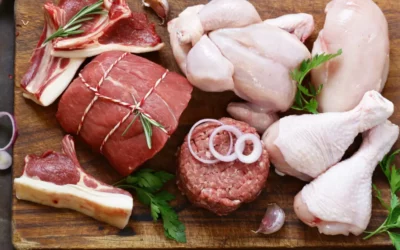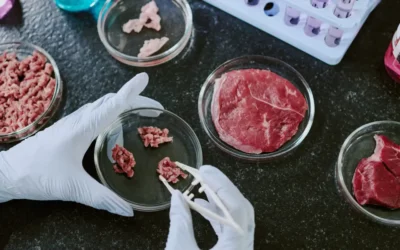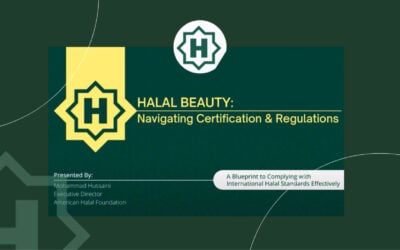Quick Answer Mono- and diglycerides (E471) can be halal when they come from 100% plant-based oils or are produced synthetically. If they originate from pork, non-zabiha beef, or share equipment with non-halal fats, they are not halal. Always confirm the source or look...
Company
Education
Expertise
Training/ Certifications
About
Articles
Halal Certification for Meat & Poultry
Animals must be slaughtered a certain way in order to be considered halal. When not slaughtered with this technique, the meat of the animals is considered forbidden, or haram. General Halal Certification Requirements for Meat & Poultry #Requirement AreaKey AHF...
What is Lab-Grown Meat? A Comprehensive Scientific Guide
Lab-grown meat (also known as cultivated meat or cultured meat) is genuine animal meat produced by growing animal cells outside of a living animal in a controlled environment.In essence, instead of raising and slaughtering livestock, we can cultivate muscle and fat...
Webinar on Halal Certification for Cosmetics
https://www.youtube.com/watch?v=ZLiFCsTuGQI The American Halal Foundation (AHF) was honored to be featured in the recent webinar hosted by the Personal Care Products Council, titled “Halal Beauty: Navigating Certification and Regulation Worldwide.” The session brought...
Halal Certification Requirements for Nutraceutical Manufacturers
In this guide, we break down the key halal certification requirements for nutraceutical manufacturers, focusing on industry best practices and globally accepted halal standards. Did You Know: AHF is also able to integrate their halal audits with the manufacturer’s...
Halal Certification Requirements for Packaging Manufacturers
Halal packaging is critical for maintaining the integrity of halal products. Even if a food, medicine, nutraceutical, or a cosmetic is produced with all halal ingredients, its status can be compromised by the very packaging that contains it. In fact, if a halal...
Halal and Safe Quality Food (SQF) Certification: Similarities and Differences
SQF (Safe Quality Food) and Halal certifications respectively play a pivotal role in ensuring food safety, quality, and compliance standards. For food safety and quality professionals, understanding these certifications is essential to meet consumer demands,...
Artificial Intelligence (AI) in Food Industry: Opportunities & Implications
Artificial Intelligence (AI) in the food industry, much like many other sectors, is revolutionizing the industry. Offering numerous opportunities to enhance efficiency, sustainability, and customer experience, AI is optimizing agricultural production,...
What is a Halal Audit? All You Need to Know
A halal audit is a structured and systematic evaluation of a company's operations, processes, and products to ensure compliance with halal certification requirements as defined by Islamic dietary laws and regulatory standards. It is an essential part of the...
Are Emulsifiers Halal? Muslim Consumer Guide to Understanding Food Additives
Emulsifiers are substances used in food products to help mix ingredients that typically do not combine well, such as oil and water. They are commonly found in processed foods, pharmaceuticals, and cosmetics to stabilize mixtures of water and oil. Whether...










